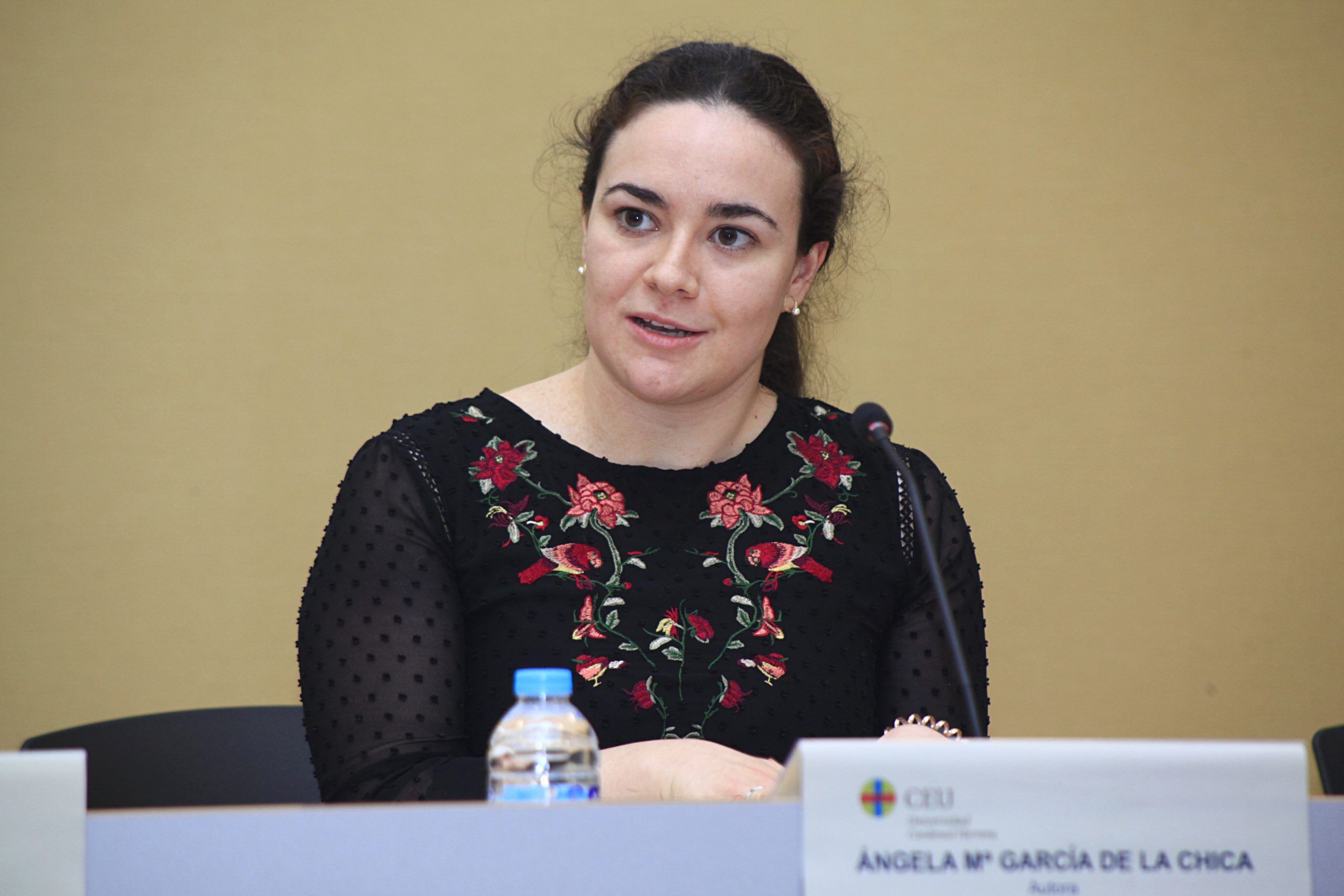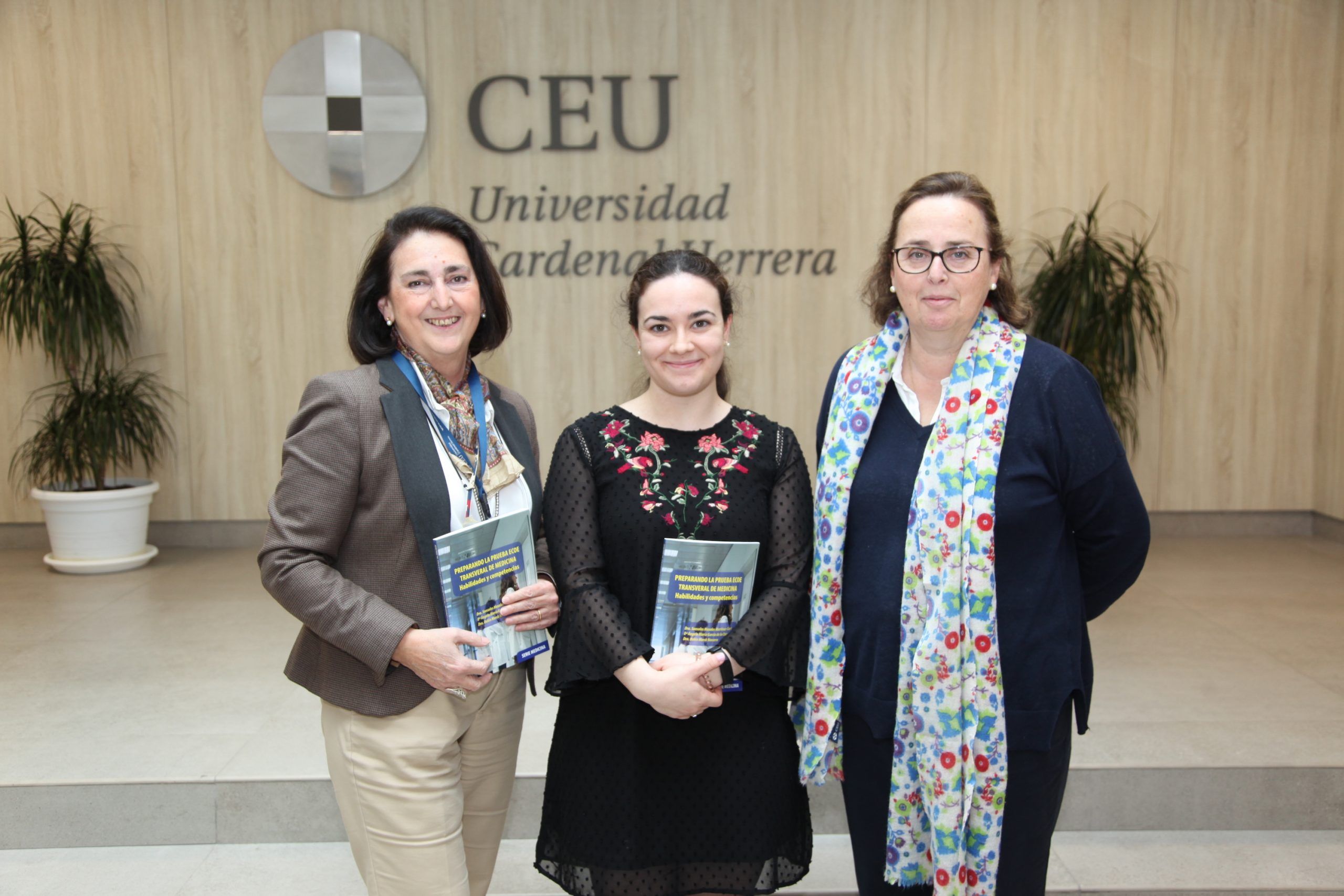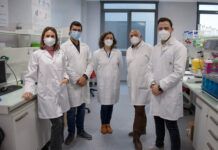Ángela María García de la Chica is a member of our first group of Medicine graduates trained at the CEU Cardenal Herrera University’s Valencia campus. Excited and committed to helping her patients, this trainee gynaecologist has joined the medical profession in amidst a pandemic.
“The feeling you get when you know a patient is satisfied with your work makes the whole journey worthwhile”

In this interview, she shares with us her experience of starting her specialty training as a gynaecologist, “the specialty that concerns a woman’s whole lifespan”.
- What has it been like to join the medical profession at such a difficult time?
It’s been bittersweet, because, on the one hand, this moment of starting my career as a doctor was something I’d been thinking about since I started my degree and so to finally be able to start was a dream come true. But then, on the other hand, the delay in the assignation of a place together with the circumstances caused by the pandemic led to some difficult times at a personal level due to the uncertainty.
- What’s your day-to-day work like as a MédicoInternoResidente [resident doctor undergoing specialty training] in gynaecology at the hospital in Alcalá de Henares?
It depends on the rotation I’m on, but, in general, it begins with the shift handover briefing, where we’re told about the admissions and births that have taken place on the previous shift, as well as any interesting cases that have come in over the previous 24 hours.Then the session continues with presentations from more senior doctors or other residents. After that we begin the shift for the rotation we’re on. So far, I’ve done rotations in pathological anatomy, dermatology, the delivery room and a gynaecology outpatients’ clinic.
- Are you seeing an increase in pressure on your service due to the number of COVID-19 cases?
Yes, we are. On the one hand, you see it in the fact the only operations in theatre are emergencies or operations that can’t be delayed, such as for cancer patients, and so other operations are being postponed. We’re also doing a lot of telephone appointments to avoid so many patients from physically coming to the healthcare facilities.
- What is it that we’ve done wrong if the ICUs are now full again?
In my opinion, I think that after the initial lockdown period, people have let down their guard. And that has meant that the safety measures haven’t been followed, allowing the virus to keep on spreading.
- I imagine that the most important thing now is for the vaccination programme to be accelerated. Have you been vaccinated yet?
Yes, I’ve had the first dose of the vaccine. More importantly than accelerating vaccinations, I think that the most important thing is to maintain social distancing, wear a mask, avoid social events and follow good hygiene procedures. In the end, vaccinations will provide us with immunity, but it won’t stop the spread of the virus yet.
Commitment to patients
- Ángela, what do you most like about being a doctor?
The feeling you get when you know a patient is satisfied with your workis what makes the whole journey worthwhile.
- Why did you choose to specialize in gynaecology?
Because it’s a very broad specialty.Every day is different, because one day you’re dealing with gynaecology and obstetrics outpatients, the next you’re in the operating theatre, and then the next you’re in the delivery room. And then within the specialty, there are subspecialties: functional gynaecology, pelvic floor, reproduction, gynaecological oncology, and so on. And it’s also the specialty which concerns a woman’s whole lifespan, from menarche to the menopause, taking in pregnancy on the way.
- You’re one of the first doctors to graduate from CEU’s Valencia campus. What memories do you have of studying at the University?
I’ve got very fond memories of it even though I had to work so hard there, both in lectures and as a student assistant in the laboratories.
“The fact that I had great classmates and lecturers who were willing to listen to me and help me made it easier to fit right in”
- Last March, you and the lecturers Sonsoles Musoles and Belén Merck, presented the book entitled Preparando la prueba ECOE Transversal de Medicina, aimed at Medicine students preparing for the final practical ECOE examination. How did the opportunity to collaborate with these lecturers come about?
When I was preparing for the ECOE exam, I couldn’t find any materials which would, on the one hand, help me to revise for different areas and, on the other, give me some guidance as to how the assessment of practical skills would take place. So, because I was a student assistant for the 6th year Practicum course, I spoke to the course coordinators and we start to flesh out an answer to the problem.

- So, the book is perfect for those Medicine students preparing for this key skills test. In your opinion, what are the defining characteristics of healthcare professionals?
You have tolove your work. You have to feel a vocation for medicine, it’s a long degree and you have to keep up to date with the latest developments. That’s why keeping that motivation to help your patient and provide the best possible care will ensure that, even if you’re not very sure what your patient’s pathology is, you’ll consider the case carefully and find the right solution for the problem.
- These are some difficult weeks ahead for the COVID-19 situation. Any advice?
Pay attention to the recommendations and be responsible.
Thank you, Ángela, and the best of luck!






